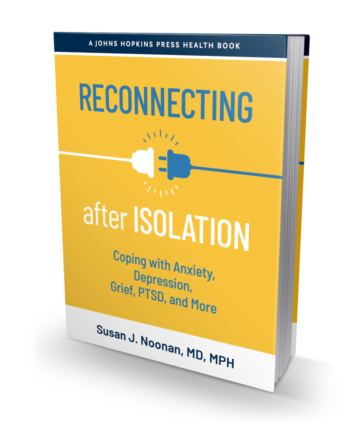When you are depressed it may be overwhelming to hear that the current guidelines for exercise in adults is a minimum of 150 minutes of aerobic activity per week, divided up into 30 minute increments over 5 days. Aerobic activity is any activity where you are moving your muscles and get out of breath and sweaty. You know that it is good for your body and brain, and your general overall health. But how in the world are you going to exercise when there is an elephant sitting on your chest and you can’t get off of the couch? And what motivation is there to do it?
Here is some news that may be encouraging and help you get started. A recent article by researcher Jessie X. Fan PhD. of the University of Utah looked at data from the National Health and Nutrition Examination Survey (NHANES) from 2003-2006 in USA adults aged 18-64. His study was to see if moderate to vigorous physical activity in periods of less than ten minutes at a time (for a total of 30 minutes per day) had any relation to a change in body weight. They found that for preventing weight gain, moderate to vigorous exercise done throughout the day in periods of ten minutes or less was effective. This was in agreement with previous studies that suggested that these shorter bouts of exercise may positively favor cardiovascular risk factors. However, for weight loss, and for a more time efficient strategy, exercise in increments of more than ten minutes at a time is recommended when possible. Unfortunately, it does not appear that the study formally addressed the impact of these shorter exercise regimens on one’s mood.
This is still good news for those who are depressed and are trying to get started on or maintain an exercise routine in spite of the incapacitating illness. It tells us that even short brisk walks or taking the stairs instead of the elevator are good for us. It suggests other opportunities to build exercise into the day, such as parking the car at the far end of the parking lot, getting off of the bus or subway a few stops earlier, walking the dog twice a day, using the stairs as much as possible, or running after your children. All of these add up. Once you have started on these simple things, it will become easier to expand your routine by a few minutes each day until you reach a goal of moderate to vigorous exercise thirty minutes per day, five days per week.
So, why would you want to do this when you feel so fatigued to begin with? For one, lack of activity such as sitting on the couch all day creates even more fatigue. Some level of exercise, surprisingly, will improve your energy level. Also, remember that with moderate to vigorous exercise your brain makes the feel-good chemicals called endorphins, which is another positive effect of your efforts. In addition, with exercise your brain makes another chemical called brain derived neurotrophic factor (BDNF) which acts like “fertilizer” to help grow new brain cells, another positive benefit of exercise. All of these act in favor of improving your mood.
Stay well.

